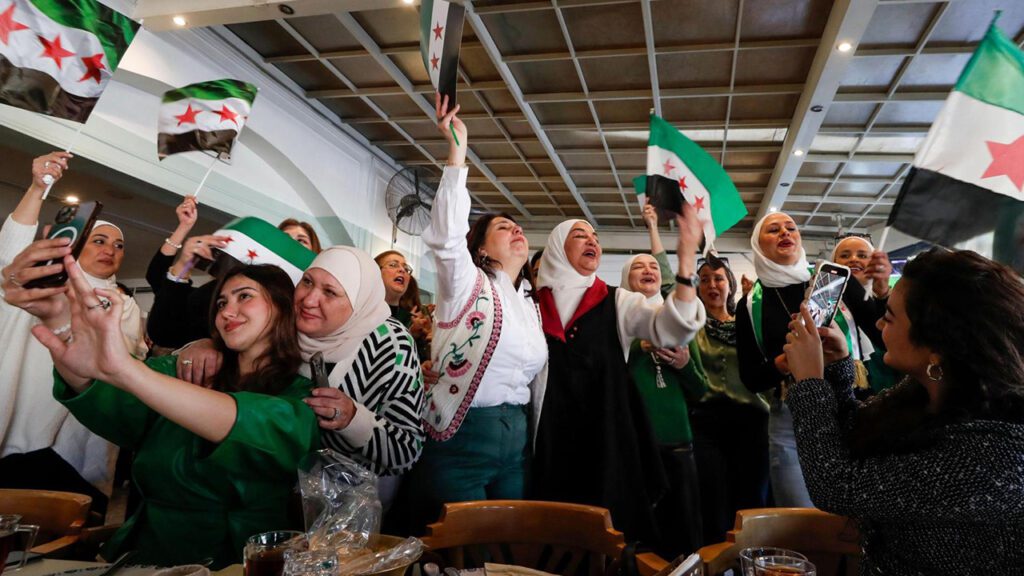Current State of Women’s Rights in Syria Following HTS Takeover
It has been 11 days since Hay’at Tahrir al-Sham (HTS) forces took control, marking a significant shift in Syria’s political landscape. Despite HTS’s claims of moderation, many Syrians remain fearful. There are growing concerns that the new administration may veer toward religious governance, risking the marginalization of minority communities and the exclusion of women from public life.
Women United: A Call for Civic Engagement
In response to controversial statements made by Obaida Arnaout, HTS’s spokesperson, indicating that “female representation in ministries or parliament is premature” due to “biological” factors, hundreds of women gathered in Umayyad Square on December 19 to assert their rights.
Demonstrations for a Secular State
Recent footage and reports revealed a massive turnout as Syrians took to the streets, calling for a civic and secular state that directly challenges HTS’s proposed constitutional changes. Demonstrators displayed placards with messages such as “Free Civil Syria,” “Towards a State of Law and Citizenship,” and “No Free Homeland without Free Women,” while chanting, “We want democracy, not theocracy.”
Women’s Resilience in the Face of Adversity
A demonstrator highlighted women’s indispensable roles during the protests: “Syrian women have been constant partners on the streets, protecting protesters, attending to the wounded, and enduring imprisonment. Those who stood against the oppressive regime are ready to reclaim their rights.”
The Economic Backbone
During the turmoil, researcher Widad Kreidi emphasized that “While men were fighting, women sustained the economy, fed their families, and managed households. No one has the right to undermine women’s roles in Damascus or elsewhere.”
HTS and Its Image of Inclusion
Despite its roots in Al-Qaeda and being labeled a ‘terrorist’ organization by several nations, HTS has made efforts to present itself as more inclusive, promising protections for various religious and ethnic minorities. Yet, there are no guarantees for equal participation from women and minority communities in Syria’s future reconstruction.
Long-Term Implications for Women’s Rights
Although HTS claims to distance itself from its extremist past, its policies in Idlib—a region characterized by strict dress codes for women and limitations on their mobility—paint a concerning picture regarding women’s rights. This brings into question the real extent of HTS’s commitment to reform.
Concerns Amid Ongoing Conflict
With the ongoing 14-year conflict having deeply impacted women, social activists are increasingly worried about their status under the new regime. Previous experiences in the Islamic Republic of Iran and Turkey under Erdoğan signify the need for heightened international engagement. The global community must prioritize backing local civil society and championing women’s rights to foster a genuinely pluralistic society in Syria.


